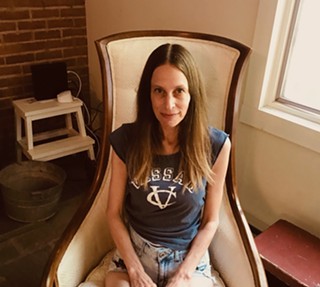"Until we look at all the multiple etiologies which are causing chronic disease, medicine is going to be at a standstill," he says. "We're going to just keep throwing money at chronic disease epidemics and their end-stage manifestations, but we're not getting to the source of the problem." Horowitz identifies 16 factors that make people ill, in what he calls the 16-point MSIDS model. Toward the top of this list are infections and environmental toxins—two elements that are "probably the biggest part of what's making people sick," he says. For the most part, the medical community has ignored their effects, but recent studies at Harvard and the University of California, Davis, have looked at environmental factors such as pesticides that increase the risk of autism. "We're finding a lot of new information that these infections and toxins are driving the inflammatory response," he says, adding, "Inflammation is the number one common denominator in all chronic disease."
Horowitz is coming out with an app to help people work with his 16-point model; he also has a vision for Chronic Disease Centers of Excellence—a new kind of clinic that will treat people using his multifactorial paradigm that looks at everything from bacteria in the gut to nutritional deficiencies and hormone imbalances. On the prevention and treatment side, he finds promise in epigenetics—a growing field of science about how we can change our genetic programming when it comes to chronic illness. "Nutritional supplements like curcumin [an anti-inflammatory], resveratrol [an antioxidant found in red wine], zinc—all of these things have been published in the medical literature as affecting the way our DNA acts in the body." Horowitz also recommends meditation, exercise, and nine hours of sleep a night, noting, "There are things we can do to change our genetic destiny."
Writing Your Own Story
When you're living with chronic illness on a daily basis, self-care of the kind Horowitz describes is essential. For Kelly Stack—a North Carolina-based health coach who specializes in helping people with chronic illness, and who was herself diagnosed with multiple sclerosis at 24—it starts with your mindset. "It's so easy for people to get totally identified with their illness and to put themselves in a box," she says. "For a lot of people, their life is about their illness." They might fixate on doctors' protocols or medical statistics, getting pulled along for the ride in a way that creates a lot of stress. But it doesn't have to be that way. Stack works with people to help them expand their experience and to reduce the feeling of isolation that chronic illness can bring. "It's so liberating to realize that even if an illness is progressing, you can still do a lot to have a really full and amazing life. We don't have to let circumstances dictate how we're experiencing life. It's important to stay open to possibilities."
In her coaching sessions (which often happen remotely over Skype), Stack tailors her approach to the specific needs of each client, drawing from her training in holistic health, integrative nutrition, positive psychology, and mind-body modalities like meditation and mindfulness. "If [a client is] feeling something really strongly, I might ask, 'Are you aware of that feeling that you're having? What does that awareness feel like?' That can lead people into a realization of the awareness that's underlying everything and that's unchanging, totally full and perfect, and that's never been touched by illness, trauma, or any other circumstances. No matter what's going on, pain or discomfort, there's always this underlying consciousness." Through exercises like this, says Stack, people can begin to disidentify with their illness and recognize that they are so much more than their diagnosis; they begin to find more peace. She also works with people to engage more with life, to seek out moments of pleasure, and to avoid the chronic stress that often comes with chronic illness.



















